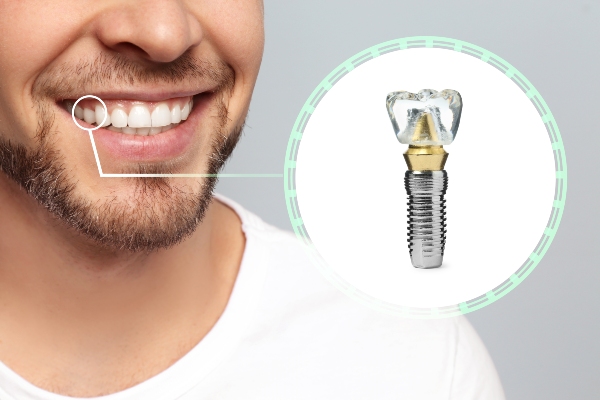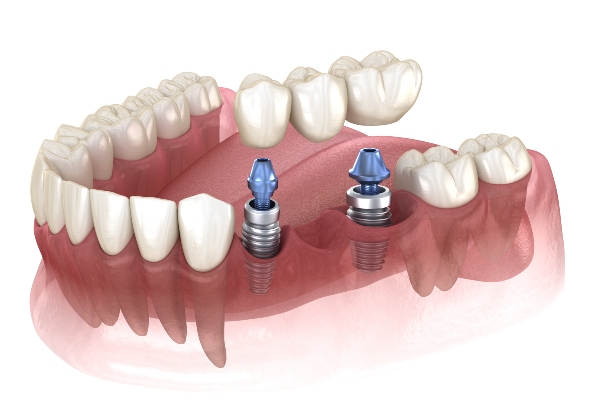3 Conditions a Family Dentist Treats

A family dentist treats patients of all ages but focuses on treating and maintaining the oral health of children and teenagers. Having a family dentist means that your entire family can see the same dentist and get to know them better. Often, the dental office can schedule appointments for everyone in the family in one visit, offering convenience and reducing the number of days you need to take off from work or school.
3 conditions a family dentist treats
Because they see patients from all age groups and in varying stages of oral health, a family dentist can handle a wide variety of issues with the teeth and gums. Here are three conditions that a family dentist commonly treats.
Gum disease
Gum disease, or periodontitis, is an infection that damages the soft tissues of the gums and can cause loose teeth and tooth loss. Symptoms of early-stage gum disease include swollen gums, gums that are prone to bleeding, bad breath, bright red gums, and gums that are tender to the touch. Although gum disease can often be prevented with proper oral hygiene, such as brushing your teeth at least twice per day, it is still one of the more common oral health conditions. As a result, it is one that family dentists are familiar with treating.
In order to diagnose you with gum disease, a family dentist may discuss your oral health habits with you to determine what risk factors you have, check your mouth for signs of plaque and bleeding, and take X-rays of your teeth and mouth to see if there is any bone loss occurring around the teeth. There are both non-surgical and surgical treatments for gum disease, with surgical procedures reserved for more advanced stages of the disease. Non-surgical remedies may include the use of antibiotics, root planing, or scaling. Surgical treatments may consist of flap surgery, bone grafting, or the application of proteins to stimulate tissue growth.
Cavities
Cavities are especially common in children and older adults, so family dentists are well-prepared to address them. Cavities are holes that develop on the surface of the teeth as a result of tooth decay. Three types of cavities include:
- Smooth surface, where the tooth enamel slowly dissolves
- Pit and fissure decay, where cavities form quickly on the chewing surfaces of the teeth
- Root decay, which is caused by receding gums exposing the root of the tooth to plaque
Cavities can be treated with fluoride, dental fillings, root canals, or tooth extraction. Your dentist can recommend the right option based on the patient's needs and the extent of the decay.
Tooth injuries
Tooth injuries can be caused by biting into hard food, playing sports, getting into a car accident, and many other activities. Family dentists can treat conditions involving chipped, broken, or lost teeth due to an injury. The dentist might reattach the broken tooth, attach a filling, or perform a root canal to fix the damage.
Other reasons to see a family dentist
Even if you or your children are not experiencing any current dental symptoms, it is still important to see a family dentist on a routine basis. Regular checkups and cleanings play an important role in maintaining overall oral health. Professional cleanings help remove tartar buildup, reducing the risks of tooth decay and gum disease. They can also help prevent staining, leading to a more beautiful smile.
Dentists conduct numerous important screenings at routine appointments that help them detect serious issues, often before symptoms arise. Visual examinations help dentists identify cavities, enamel loss, and gum recession. They also help them determine if there are any developing issues with bite or alignment. X-rays can reveal infections, tooth decay below the surface, and even signs of bone loss or cancer. Early detection allows for more treatment options and in many situations, a better overall outcome.
Dental anxiety is relatively common, especially in younger children. However, regular visits to the dentist's office can help patients of any age feel more comfortable and at ease. This allows them to become more familiar with the environment while establishing a good relationship with the staff at the office.
Conclusion
You can expect to have these three conditions and many others treated by a family dentist. If you experience a problem with your teeth or gums, do not hesitate to contact your dentist right away before the problem gets worse. Also, remember to prioritize routine appointments for better oral health.
Request an appointment here: https://artisandentalbellevue.com or call Artisan Dental at (425) 454-2005 for an appointment in our Bellevue office.
Check out what others are saying about our dental services on Google: Family Dentist in Bellevue, WA.
Recent Posts
Regular dental checkups are vital to keeping your teeth and gums healthy. You should visit your family dentist at least once every six months. This includes both adults and children alike. Routine dental appointments are essential for good oral health and they offer many important benefits.Tartar removal is an important step in dental appointments that…
Dental sealants are among the services a family dentist provides to help prevent tooth decay. Dentists perform the application on the back teeth, or molars, used primarily for chewing. These teeth have tiny crevices and uneven places where the bacteria that can cause cavities are often found. According to the American Dental Association, sealants can…
There are many reasons to consider choosing either a family dentist or a general dentist. A move to a new location, changing dental needs, or even the retirement of a current dentist can lead a patient to weigh the available options in dental care. Knowing the difference in the services and restrictions of each type…
A family dentist is an excellent choice for many people. This professional is trained to diagnose and treat common dental conditions in patients of all ages so that an entire family can visit the same dentist. That makes it easy for busy households to schedule routine care and preventative treatments. Patients should always work with…











